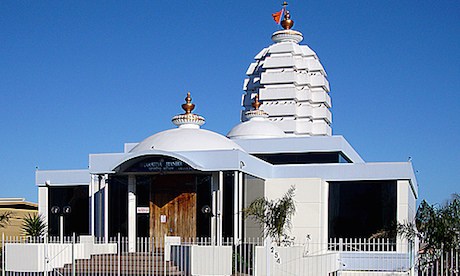
The Parliamentary Profiles contain information on all manner of religions. Even though India and China are much closer to the New Zealand than the Middle East is, the Middle Eastern religions have a much higher profile here than the Oriental ones.
The vast majority of Kiwi Buddhists are Asians, despite the number of Kiwis of European descent that the reader may have met claiming to be Buddhists. Being a Buddhist in New Zealand has an extremely strong correlation, of 0.87, with being born in North East Asia.
This third factor of being Asian explains why Buddhists love the ACT Party. Being Buddhist has a correlation of 0.85 with voting for ACT in 2014, although there is nothing obvious in Buddhist doctrine that would lead a person towards supporting the ACT Party.
Probably also because of the third factor of being Asian and an immigrant, there was a correlation of -0.66 between being Buddhist and voting for New Zealand First.
Of the other three major parties, Buddhists are indifferent. None of the correlations between being Buddhist and voting National in 2014 (0.15), voting Labour in 2014 (0.08) and voting Green in 2014 (0.12) were significant. This might suggest that Buddhist immigrants to New Zealand have generally peacefully integrated.
There were significant negative correlations between being Buddhist and voting for the other three Maori-heavy parties. With voting Internet MANA in 2014 it was -0.26, with voting Maori Party in 2014 it was -0.33 and with voting Aotearoa Legalise Cannabis Party it was -0.52.
Perhaps most fittingly, Buddhists were perfectly indifferent to the idea of voting in general – the correlation between being Buddhist and turnout rate in 2014 was 0.00.
Hindus followed the general pattern of demographic groups that have a high proportion of immigrants voting ACT out of a lack of solidarity with other Kiwis – the correlation between being Hindu and voting ACT was 0.50.
This absence of solidarity is not something that we can say is a general rule for all Hindus – the correlation between being Hindu and voting Labour in 2014 was 0.47. This might reflect that many Hindus are from Fiji and therefore will be attracted to Labour in the same way that other Pacific Islanders are.
Probably reflecting that many of them are immigrants, there were significant negative correlations between being Hindu and voting for three of the four Maori-heavy parties in 2014.
With voting for New Zealand First it was -0.40, with voting Aotearoa Legalise Cannabis Party it was -0.40, and with voting for the Maori Party it was -0.24. Only for voting Internet MANA in 2014 was the correlation with being Hindu not significant – and it was still -0.19.
If the Hindu left likes Labour and the Hindu right likes ACT, we can predict two things: a negative correlation with being Hindu and voting both Green and National in 2014. Indeed, the correlation for the former is -0.09 and for the latter it is -0.13.
Perhaps reflecting a minor degree of disenfranchisement, there is a negative but not significant correlation between turnout rate in 2014 and being Hindu: this was -0.17.
Muslims were very similar to Hindus on most counts, probably reflecting the third factor of a shared South Asian origin. The correlation between being Muslim and voting for a particular political party was identical to the Hindu one in the case of both voting ACT (0.50) and voting Aotearoa Legalise Cannabis Party (-0.40). In the case of the others it was very similar.
It was more positive in the case of Labour (0.51), Green (-0.05), Maori Party (-0.23) and Internet MANA (-0.16). It was more negative in the case of National (-0.17), Conservative (-0.16) and New Zealand First (-0.46).
Taken together, this group of correlations suggest that Muslims are generally in the same voting bloc as Hindus, but they have slightly more leftist sympathies. The correlation between turnout rate in 2014 and being Muslim (-0.21) is also slightly more strongly negative than the correlation with being Hindu. This may reflect that Pakistan is a considerably less wealthy nation than India.
The voting patterns of Jews reflected two things: that they are generally in high socioeconomic categories and that they have very, very little nationalist sentiment towards New Zealand. These factors are reflected in the correlations between being Jewish and voting Green, ACT or New Zealand First.
Like other highly-educated demographics, Jews appear to eschew the everyday Labour-National paradigm. The correlation between voting Green in 2014 and being Jewish was 0.43, and the correlation between voting ACT in 2014 and being Jewish was 0.42. These two correlations reflect that there is also a moderate positive correlation between being Jewish and being born overseas.
Being Jewish was negatively correlated with voting for any of the parties that traditionally appeal to less educated people. The correlation with being Jewish and voting Labour in 2014 was -0.25, and with voting Conservative in 2014 it was -0.15.
If globalist sentiments are so widespread among Jews, then it comes as little surprise that being Jewish is negatively correlated with the four Maori-heavy parties, and especially so for New Zealand First, voting for which in 2014 had a correlation of -0.57 with being Jewish. For voting Internet MANA it was -0.15, for voting Maori Party it was -0.18 and for voting Aotearoa Legalise Cannabis Party it was -0.31.
Reflecting a low degree of disenfranchisement, mostly on account of that many Jews are highly educated and work as professionals, there was a correlation of 0.30 between being Jewish and turnout rate in 2014.
*
This article is an excerpt from Understanding New Zealand, by Dan McGlashan, published by VJM Publishing in the winter of 2017.
